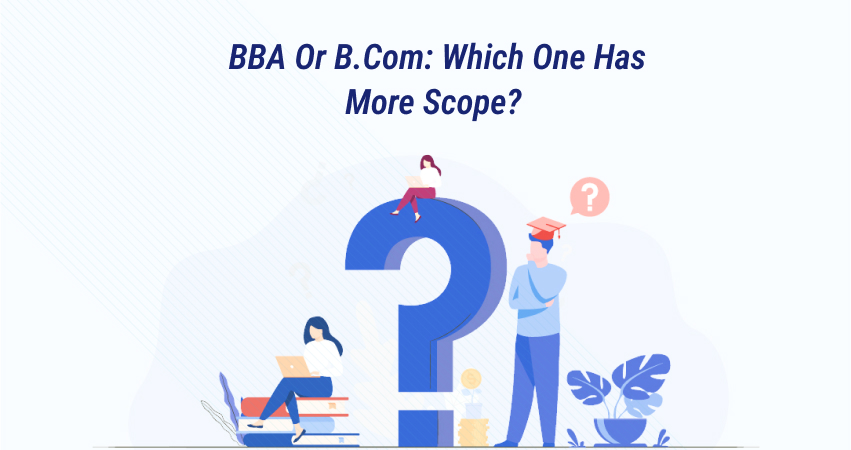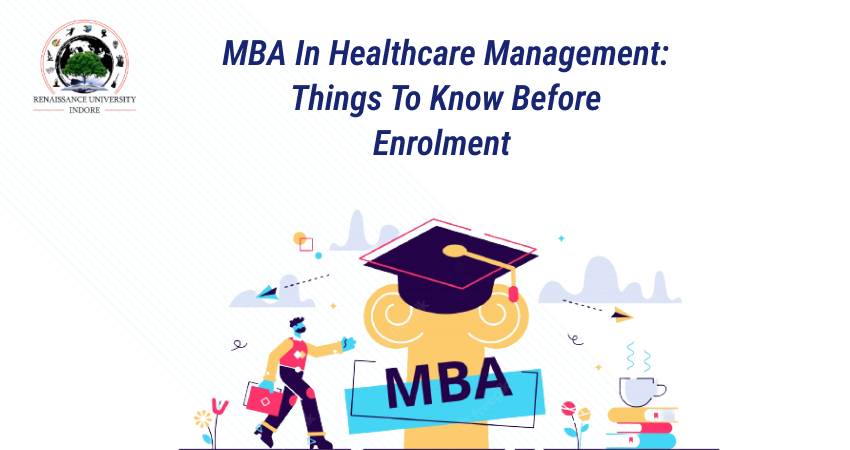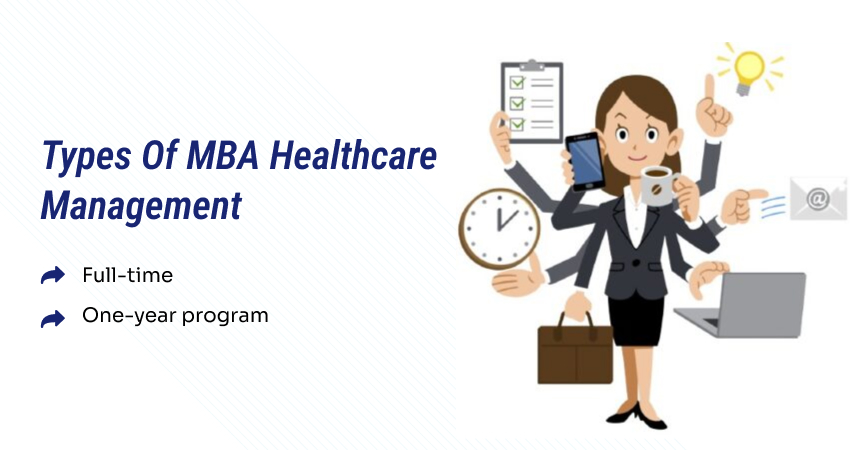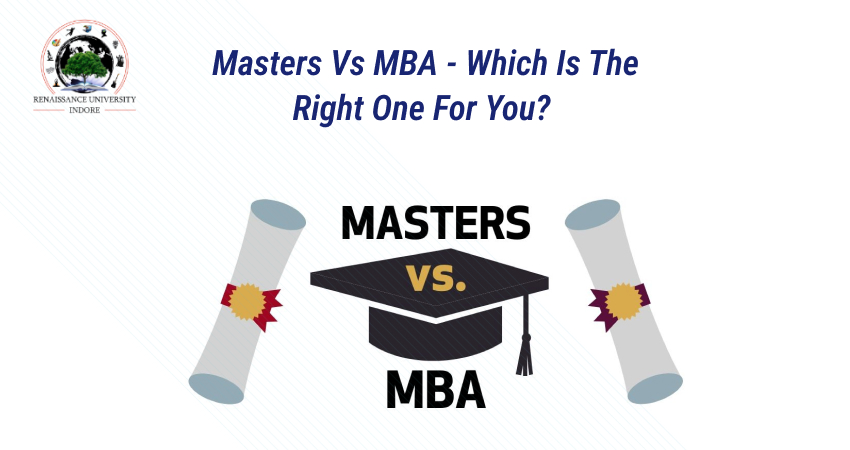Business education is becoming increasingly well-liked as the Indian market keeps changing. Educational institutions are creating more specialized courses to fulfill the needs of the nation’s economic changes. Many methods are available for students who want to major in business or management. The two degrees students who wish to work in management or commerce most frequently choose between BBA vs BCom. It might be challenging to choose the best career path after graduating high school due to the abundance of available options. Students frequently aren’t sure whether to select BCom vs BBA as their study path.
Here is a thorough comparison of the two courses BBA vs BCom to assist you in making your decision.
What is Bachelor of Commerce (BCom)?
BCom is a traditional yet versatile program that lays a strong foundation in core commerce subjects. Typically, BCom courses include a mix of subjects such as Accounting, Finance, Economics, and Business Law. This course is an excellent choice for students who have a keen interest in financial management, taxation, and related fields.
Pros and Cons of BBA Course
This program, renowned for its comprehensive understanding of commerce and business, provides students with a solid foundation in various facets of the corporate world. However, like any educational pursuit, a B.Com course comes with its own set of advantages and disadvantages.
Pros:
Versatility in Career Options:
One of the primary advantages of a B.Com course is its versatility. Graduates can explore diverse career paths such as accountancy, finance, marketing, and entrepreneurship. The broad curriculum equips students with skills that are applicable across various industries.
Holistic Business Education:
B.Com programs typically offer a well-rounded education in commerce, covering subjects like accounting, economics, business law, and management. This holistic approach ensures that graduates possess a comprehensive understanding of the business world.
Professional Networking Opportunities:
B.Com courses often provide students with ample opportunities to network with professionals through internships, seminars, and industry events. Building a robust professional network can prove invaluable in securing job opportunities after graduation.
Foundation for Further Studies:
The B.Com degree serves as a solid foundation for those considering pursuing advanced studies, such as a Master’s in Business Administration (MBA) or specialized courses in finance, accounting, or marketing.
Practical Learning through Internships:
Many B.Com programs incorporate mandatory internships, allowing students to gain practical experience in real-world business scenarios. This hands-on exposure is crucial for applying theoretical knowledge to practical situations.
Cons:
Specialization Limitations:
While B.Com provides a broad understanding of commerce, it may lack the depth required for specialized roles. Individuals seeking highly specialized careers may find it necessary to pursue additional certifications or postgraduate studies.
Saturation in Job Market:
The popularity of B.Com programs has led to a saturation in the job market, making it competitive for entry-level positions. Graduates may need to differentiate themselves through additional skills or qualifications.
Evolution of Technology:
The business landscape is rapidly evolving with advancements in technology. B.Com courses may sometimes lag in integrating the latest technological trends, potentially leaving graduates at a disadvantage in tech-driven industries.
Limited Focus on Soft Skills:
While technical knowledge is emphasized, B.Com courses may not give equal attention to developing soft skills such as communication, teamwork, and leadership. These skills are increasingly vital in the modern workplace.
What is Bachelor of Business Administration (BBA)?
BBA, on the other hand, is a more specialized program that focuses specifically on business management and administration. It is designed to equip students with the skills and knowledge required for managerial roles in diverse industries.
Pros and Cons of BBA Course
The Bachelor of Business Administration (BBA) course emerges as a popular choice for those seeking a foundation in business management. However, like any educational path, the BBA program comes with its own set of advantages and disadvantages. In this article, we delve into the pros and cons of pursuing a BBA course to help aspiring students make informed decisions about their academic journey.
Pros:
Holistic Business Foundation:
One of the primary advantages of a BBA course is the comprehensive understanding it provides across various facets of business. From marketing and finance to human resources and operations, students are exposed to a wide range of subjects, equipping them with a holistic view of the business world.
Enhanced Communication and Leadership Skills:
BBA programs often emphasize communication and leadership skills, essential qualities in the professional realm. Through group projects, presentations, and interactive classes, students develop the ability to articulate ideas effectively and lead teams, fostering valuable interpersonal skills.
Industry Exposure:
Many BBA programs incorporate internships, workshops, and industry visits, allowing students to gain real-world exposure. This hands-on experience proves instrumental in bridging the gap between theoretical knowledge and practical application, preparing students for the challenges of the professional world.
Versatility in Career Options:
The diverse nature of BBA programs opens up a plethora of career options. Graduates can explore roles in finance, marketing, human resources, entrepreneurship, and more. This versatility ensures that BBA holders are well-suited for a variety of industries and job profiles.
Networking Opportunities:
BBA courses often provide ample networking opportunities through seminars, conferences, and alumni interactions. Building a strong professional network during the course can be advantageous in securing internships, job placements, and even entrepreneurial partnerships in the future.
Cons:
Generalization vs. Specialization:
While BBA programs offer a broad understanding of business, some argue that the lack of specialization can be a drawback. Specialized knowledge in a particular field may become essential for career advancement, and BBA graduates might need additional qualifications or experience to compete with specialists.
Limited Depth of Knowledge:
The breadth of subjects covered in a BBA program can sometimes lead to a lack of in-depth knowledge in specific areas. For those aiming for highly specialized roles, further education or certification may be necessary to acquire the depth of expertise demanded by certain industries.
Competitive Job Market:
As BBA programs attract a large number of students, the job market can become highly competitive. Graduates may find themselves vying for similar positions, necessitating additional efforts such as obtaining postgraduate degrees or certifications to stand out in the crowd.
Cost of Education:
Pursuing a BBA degree can be financially demanding, especially if the program is offered by prestigious institutions. The cost of tuition, books, and other associated expenses may lead to significant student debt, prompting prospective students to carefully consider the return on investment.
Evolution of Business Trends:
The business landscape is ever-evolving, with new trends and technologies shaping industries. Critics argue that BBA programs might struggle to keep pace with these rapid changes, leaving graduates with knowledge that may become outdated in certain sectors.
BCom vs BBA: Key Differences?
After completing their education, students with a background in commerce frequently ask themselves, “Is B.Com better than BBA?,” or “Should I do BBA after 12th class or B.Com?”
Those who want to advance their business knowledge take the undergraduate BBA (Bachelor of Business Administration) degree. The Indian BBA program takes three years to complete. The three-year program is divided into six semesters. Some nations provide the BBA program for four years.
BBA students need to be knowledgeable in various topics, including human resources, international business, operations management, marketing, information technology, finance, and insurance. Students enrolling in a BBA program learn topics that prepare them to manage a business. The BBA course curriculum is structured to lay the groundwork for the MBA program.
Another UG-level course is B.Com (Bachelor of Commerce), which offers fundamental business, accounting, economics, and finance knowledge. A three-year curriculum with six semesters is available in India for the B.Com degree.
The B.Com degree has several prerequisite courses, including business mathematics, business legislation, financial accounting, cost accounting, economics, and general business. Students considering an accounting career after graduating from high school may wish to consider getting a BCom degree.
Some students enroll in the CA (Chartered Accountancy) or CS (Chartered Secretary) program after earning their B.Com degree. After receiving their B.Com degree, students have many other options.
Difference Between B.Com and BBA Graduates
| Criteria | B.Com Graduates | BBA Graduates |
|---|---|---|
| Curriculum Emphasis | Broad and comprehensive understanding of commerce, including accounting, economics, and business law. | Focus on business administration, management, and leadership skills with a broader understanding of business functions. |
| Specialization | Limited specialization, may require additional certifications for highly specific roles. | Allows for specialization in areas like marketing, finance, human resources, and international business during the course. |
| Job Market Saturation | Highly competitive due to the popularity of B.Com programs. | Moderately competitive with a potentially clearer path to specialized roles through focused coursework. |
| Technological Integration | May lag in integrating the latest technological trends. | Tends to incorporate technology and its applications in business, preparing graduates for tech-driven industries. |
| Soft Skills Development | Emphasis may vary, with some programs lacking in the development of soft skills. | Typically includes courses or opportunities for the development of soft skills such as communication, teamwork, and leadership. |
| Flexibility in Curriculum | Some criticism for being rigid, offering limited customization options. | Generally more flexible, allowing students to tailor their coursework to align with specific career goals. |
| Salary Range | Depending on factors like job role, location, and experience, salaries can vary widely. | Potential for higher starting salaries, especially in roles requiring business administration and management skills. |
| Career Path Options | Versatile career options across various industries and roles. | Primarily oriented towards managerial and administrative roles, offering a clearer career trajectory in business management. |
| Opportunities for Further Studies | Serves as a foundation for further studies; commonly pursued by those aiming for postgraduate degrees. | Offers a solid foundation for further studies, with many BBA graduates pursuing MBA programs for career advancement. |
| Networking Opportunities | Opportunities may vary; some programs may provide robust networking avenues. | Typically includes extensive networking opportunities through internships, industry events, and business-focused coursework. |
Salary Packages Of BBA and B.Com Graduates
Salary Packages for BBA Graduates in India:
BBA graduates in India find themselves in demand across diverse industries. The starting salary for BBA graduates typically ranges from INR 3 to 6 lakhs per annum, depending on factors like the candidate’s specialization, the reputation of the institution, and the industry they choose to enter. Graduates specializing in finance or information technology often command higher starting salaries compared to their peers in general management.
As BBA professionals gain work experience and progress in their careers, their earning potential sees a significant upswing. Mid-career BBA professionals in India can earn anywhere between INR 6 to 12 lakhs annually, with those in leadership roles or specialized positions commanding salaries at the higher end.
Salary Packages for B.Com Graduates in India:
B.Com graduates, armed with a strong foundation in commerce, are sought after for roles in accounting, finance, and taxation. The starting salary for B.Com graduates in India typically ranges from INR 2.5 to 5 lakhs per year. Similar to BBA, specialized areas within B.Com, such as chartered accountancy or financial analysis, can lead to higher starting salaries.
As B.Com professionals accumulate experience, their earning potential witnesses a steady rise. Mid-career B.Com graduates in India can expect to earn between INR 5 to 8 lakhs annually, with those holding professional certifications or occupying managerial roles commanding salaries at the higher end.
1. BBA vs B.Com: Which Course has more scope?

Both the BBA and the BCom have lots of scope in the market. The following are some of the primary areas of focus for BBA vs BCom.
BBA program graduates may work as executives in company development, marketing, or human resources. BCom graduates have a variety of job options, including cost accountant, CA, and corporate secretary.
Along with BBA graduates, BCom graduates might choose to pursue an MBA. But whereas BCom is a course that focuses more on finance, BBA includes a lot of the same content as MBA.
BBA graduates often start out earning more money than BCom graduates. BBA and BCom degrees start at $40,000 and $20,000, respectively, in starting earnings.
2. BBA vs BCom: What to choose for Chartered Accounting?
Most students select the BCom program in order to continue their studies in CA. There is no mandate that CA be finished after BCom, nevertheless. Graduates with a BBA degree may choose to work in accounting. There are certain benefits to studying BCom over CA because the subjects are the same. Without having to learn anything else, they may concentrate solely on their CA preparation.
However, students have selected the course they want to study but still get confused while choosing the best College imparting education in both of these courses and other courses.
But now, students don’t need to worry about College because Renaissance University is here to support you in building your career.
Renaissance University Offering BCom (Hons) Course

If you want to study BCom (Hons) Course, Renaissance University is a Top BCom college in Indore.
Renaissance College, one of Central India’s first educational institutions, has been running successfully since 2006. The ideal location of the Institute substantially helps the parallel educational system. It provides a range of management, business, and public speaking courses and is affiliated with Devi Ahilya Vishwavidyalaya.
However, the Institute encourages extracurricular activities and interests. Academic success is prioritized because it contributes to students’ overall growth.
Renaissance University offers both regular BCom and BCom (Hons) programs. Each course lasts for three years and is a full-time curriculum. By meeting the criteria given below, candidates must be qualified for these courses. Students need a minimum overall average of 50% in a pertinent discipline in class 12 from a recognized institution. A minimum score of 45% is required for candidates in the reserved categories.
BBA Course at Renaissance University, Indore
Renaissance University, a Top BBA College in Indore, India, that awards a Bachelor of Business Administration (BBA) degree. This three-year degree prepares you for a successful career in management by covering functional areas such as finance, marketing, human resources, and others.
Graduates from the SSC or HSC who aspire to start their businesses and be creative leaders should apply to this undergraduate program. While pursuing this degree, you will acquire a comprehensive and integrated understanding of business in a contemporary, global environment.
Furthermore, there is a significant focus on entrepreneurship in business and management, which will provide you with the knowledge and skills necessary to handle critical business operations.
In the first year of this course, you will master general business principles, and in the second year, you will improve your problem-solving and decision-making skills. Your education over the past year has combined all the functional perspectives you have acquired to give you a greater understanding of how to think strategically in a multinational corporation. Thus, this university is the best BBA College in Indore.
Renaissance University Eligibility for Admissions
The student must have passed the HSC or 10+2 examinations from a recognized board in any stream or discipline with a minimum needed percentage in each course. Merit-based and internal criteria determine who is admitted to the Renaissance University Course.
How to Apply to Renaissance University, Indore?
- All undergraduate applicants who satisfy the requirements must complete an application form, which may be acquired from the official website.
- Candidates must also pay INR 500 using online banking to receive the form.
- After receiving the applicant’s completed application, the College will notify them if they were accepted.
- Since the Institute would reject an incomplete application, candidates must completely and accurately fill out the application form.
- At the College’s campus, candidates must physically present their application forms and any necessary paperwork.
- For all future correspondence, the applicant should keep in mind the application number.
Renaissance University Facilities
Renaissance University hostel, cafeteria, library, auditorium, sports field, and cultural center are just a few amenities available to students.
- Hostels: The College offers clean, well-organized hostel accommodations for both boys and girls. The bedrooms are tastefully decorated and frequently cleaned. The hostel also offers a dining area.
- Library: The College offers a well-stocked library with important dental literature and periodicals. The College also includes a piece of the internet with the ability to access electronic journals.
- Cultural Activities: The Institute promotes house culture among its students to foster a healthy sense of competition, creativity, belongingness, teamwork, leadership, and invention. The College is well-known for the numerous cultural and sporting events each month.
- College Club: The College features well-established clubs in various disciplines, including photography, music, dance, fashion, and literature, among others, where students can learn information and develop abilities. At least one of the clubs must be joined by every student. Every club provides outdoor amenities and frequently hosts workshops.
How are placements at Renaissance University?
Students receive training at the Institute to help them get jobs. Graduates of Renaissance University are eligible for a variety of employment options. About 80–90% of the students are placed in a reputable company due to the numerous reputable companies that visit the College to recruit.
The Institute also offers students required paid internship opportunities with well-known and respected businesses. Students receive excellent support from the faculty members, who also help them prepare for group discussions and interviews.
Why Renaissance University?
- Heart of the city location
- Emphasizes the academic excellence of the faculty members
- Grand occasions planned for pupils’ overall growth
- Exposure to a wide range of cultural events, developing student’s talents
- Recognizing the student’s athletic ability and giving them the tools they need to advance in their chosen sport
- A strong relationship between teachers and students
- Focuses on teaching our children values to help them become better people
Conclusion
You can opt to pursue a BBA or B.Com study, depending on your long-term goals and the types of foundations you need in your undergraduate degree to help you get there. There aren’t many career distinctions, opportunities for further study, or wages.
B.Com offers a broader range of career options, particularly in finance, whereas B.BA often directs students toward a managerial career.
After completing their B.Com program, students can obtain employment in various fields, such as accounting, the stock market, banking, tax advice, and finance. Graduates of BBA programs can find work in marketing, human resources, finance, and general management.
For more information and details about Renaissance University you can visit our website. There you can get each and every detail about the University.












